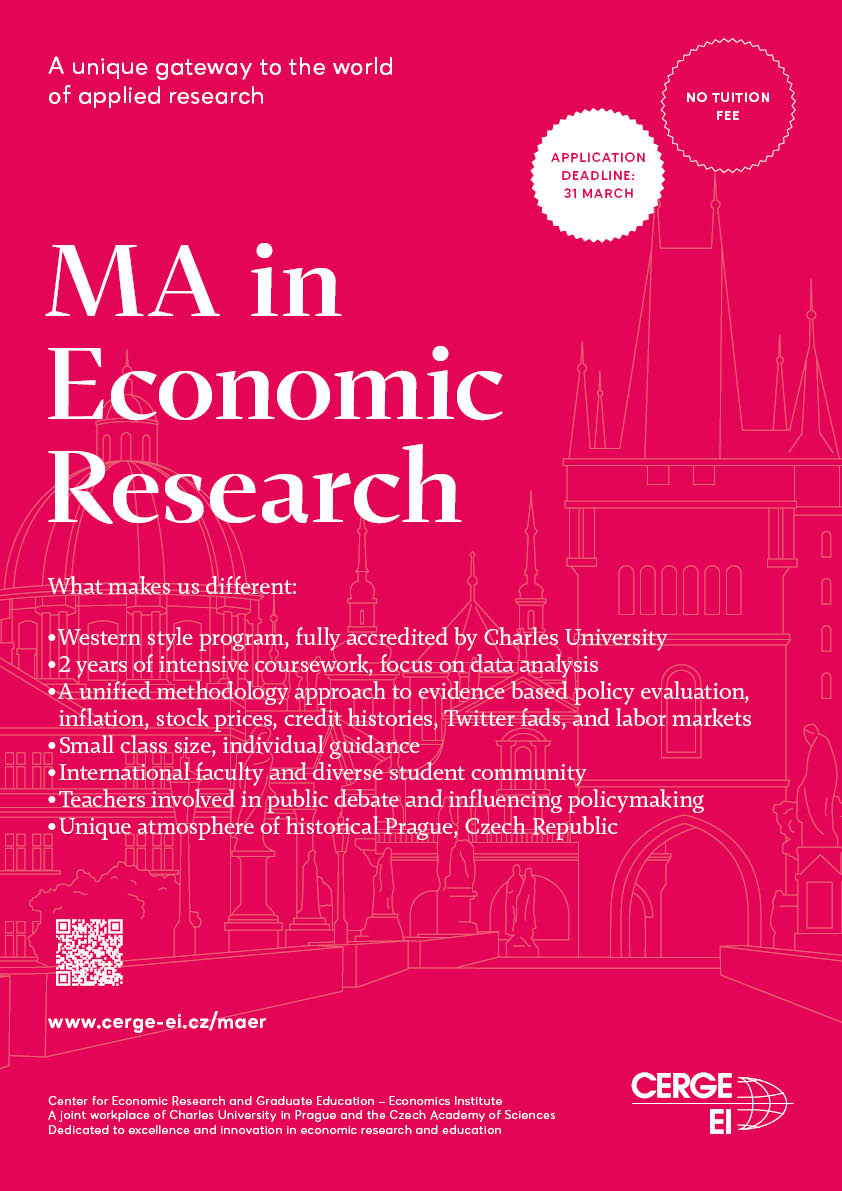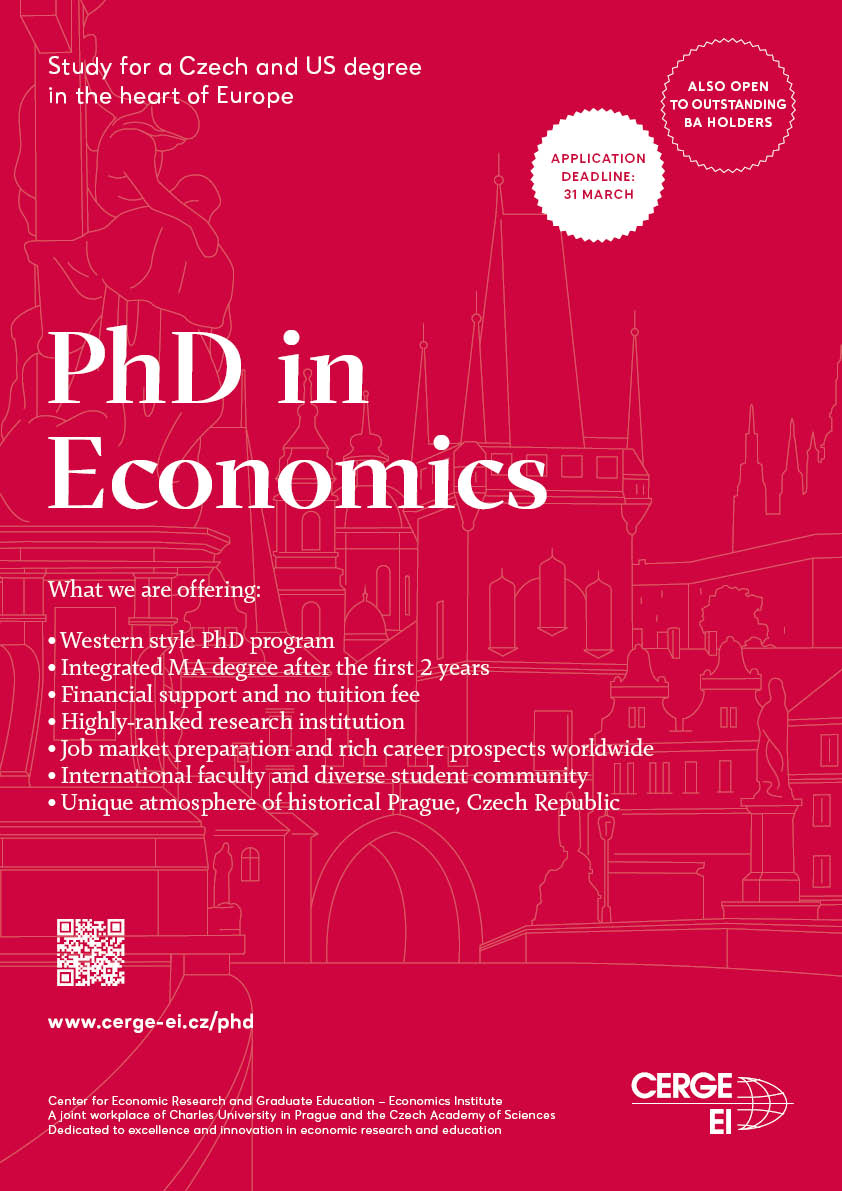Daily Events
10:00 | For Study Applicants
Gaudeamus Prague educational fair
Are you a BA or MA student interested in our Master in Economic Research or PhD in Economy programs?
Would you like to learn more about the curriculum or the admission process?
Let us invite you to Gaudeamus Prague educational fair on January 24-26, 2023.
You will find as at the Charles University´s stand.


14:00 | Macro Research Seminar
University of Minnesota, United States
Authors: Hanno Kase, Leonardo Melosi, Matthias Rottner
Abstract: Economists typically make simplifying assumptions to make the solution and estimation of their highly complex models feasible. These simplifications include approximating the true nonlinear dynamics of the model, disregarding aggregate uncertainty or assuming that all agents are identical. While relaxing these assumptions is well-known to give rise to complicated curse-of-dimensionality problems, it is often unclear how seriously these simplifications distort the dynamics and predictions of the model. We leverage the recent advancements in machine learning to develop a solution and estimation method based on neural networks that does not require these strong assumptions. We apply our method to a nonlinear Heterogeneous Agents New Keynesian (HANK) model with a zero lower bound (ZLB) constraint for the nominal interest rate to show that the method is much more efficient than existing global solution methods and that the estimation converges to the true parameter values. Further, this application sheds light on how effectively our method is capable to simultaneously deal with a large number of state variables and parameters, nonlinear dynamics, heterogeneity as well as aggregate uncertainty.
JEL Classification: C11, C45, D31, E32, E52
Keywords: Machine learning, neural networks, Bayesian estimation, global solution, heterogeneous agents, nonlinearities, aggregate uncertainty, HANK model, zero lower bound
Full Text: Estimating Nonlinear Heterogeneous Agents Models with Neural Networks









